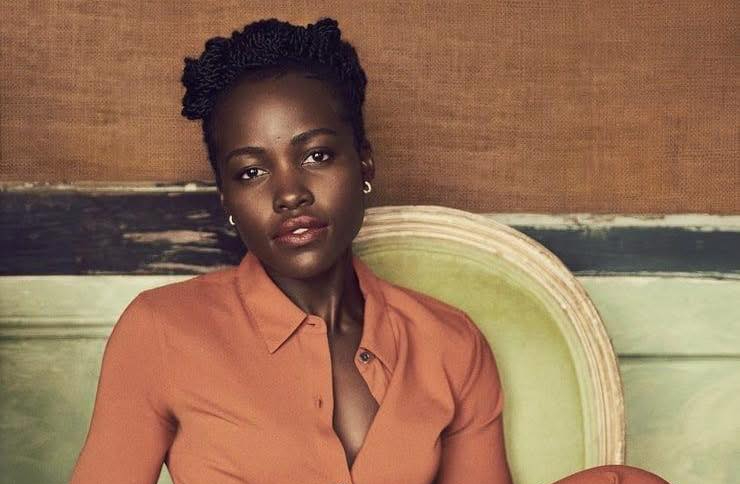Lupita Nyong’o is making headlines again not for a blockbuster role, but for the courageous path she carved out after winning her Oscar. In a deeply personal interview on CNN Inside Africa, she revealed that following her Academy Award win for 12 Years a Slave, she was repeatedly offered roles that echoed her past trauma: “They just wanted more slave stories,” she said.
Instead of taking the easy route, she chose principle over profit. By saying no to parts that perpetuated stereotypes, Lupita redefined what Hollywood success could look like — and in doing so, she shaped not only her legacy, but her long-term financial trajectory.
A Quiet Rebellion: Turning Down Typecast Offers
Winning an Oscar is supposed to unlock every door. But for Nyong’o, the reality was painfully different. Despite being one of the most respected young actors in Hollywood, she says she received offers that trapped her in the same narrative she had just transcended:
“After I won … you’d think, ‘I'm gonna get lead roles here and there.’ Instead … ‘Oh, Lupita, we'd like you to play another movie where you're a slave …’ Those are the kind of offers I was getting in the months after winning my Academy Award.”
She called that period “tender,” emotionally and professionally. The media speculated: was her Oscar win the beginning and the end of her career? There were think pieces asking whether a dark-skinned African woman could sustain her momentum. She listened, she felt the weight — and she responded with strength.
Nyong’o refused to be boxed in. She insisted she wasn’t a theory or a symbol. “At the end of the day … I’m an actual person.” That voice of self-ownership has propelled her into roles that matter, ones that challenge the status quo.
The Business of Choosing Dignity
This is where the story gets especially interesting — not just from a moral or cultural point of view, but from a financial and business perspective too.
By turning down roles rooted in suffering, Nyong’o spurned what might have been the simpler, more lucrative path in the short term. But she made a different bet: that her long-term value as a brand, an actor, and a cultural force would grow more by staying true to her identity.
This decision is strategic. Hollywood is a business and she clearly understands her market power. Rejecting typecasting isn’t just about protest; it's about preserving brand equity. She is building a legacy that is about more than box office or paychecks.
Over time, her career choices have aligned with projects that offer greater depth, allowing her to take roles in major franchises like Black Panther, and other meaningful works that expand her reach not just as an actress, but as a public figure and influencer. That diversified portfolio supports her financial resilience while enhancing her reputation as a principled actor.
Wealth with Purpose: The Financial Angle
Lupita Nyong’o’s career is a powerful case study in wealth built on values, not just fame. By rejecting repetitive, stereotype-heavy roles, she’s not sacrificing income she’s investing in her long-term brand, and increasing her financial runway. Here’s how:
-
Brand Positioning: Choosing integrity over typecasting boosts her credibility, making her more attractive for endorsement deals, meaningful film partnerships, and creative collaborations.
-
Long-Term Earnings: By aligning with quality projects, she opens up opportunities for residual income, better backend deals, and roles with global appeal — not limited to trauma narratives.
-
Legacy Value: Her stance builds lasting value. She is not just in films — she’s shaping culture, and that creates intangible worth that evolves into tangible opportunities (books, production, advocacy).
Real-world data backs this up: top actors who maintain strong, values-driven personal brands often earn significantly more over a decade than those trapped in formulaic roles. According to analysis reviewed by CEO Today, brand strength and longevity can drive earnings up by 20–30% more than short-term blockbuster payoffs.
By being a “joyful warrior” rather than a stereotype, she is doubling down on her financial future — not in spite of her values, but because of them.
Why Her Story Matters Right Now
Lupita Nyong’o’s revelations are resonating because they speak to something deeper: the undercurrents of race, stereotype, and power in Hollywood are still very real. But she’s not just pointing out a problem she’s mapping an alternative path for actors of color.
Her choice to turn down roles is a calculated risk, but one rooted in self-respect and vision. In doing so, she’s not just safeguarding her identity; she’s building a richer, more sustainable financial foundation for the rest of her career.
As audiences, businesses, and fans, our attention matters because supporting artists who refuse to compromise changes the economics of storytelling. Nyong’o is showing that integrity can be a profitable business strategy.
Insight Corner
Lupita’s journey invites a compelling question for the industry: What is the true currency of acting? If talent is the baseline, then values, voice, and vision are the long-term ROI.
FAQ: Questions You Might Be Curious About
How common is typecasting for Black actresses after awards?
It is unfortunately very common. Many Black actresses report being offered roles that lean into trauma or historical suffering, especially after a high-profile win. Nyong’o’s case highlights the structural stereotypes that persist in casting.
Does turning down Hollywood roles hurt an actor’s earning potential?
In the short term, yes, it can limit paychecks. But strategically, it can strengthen an actor’s brand, leading to more lucrative, meaningful projects, endorsements, and long-term earnings. Nyong’o seems to be turning this into a smart business move.
Can an actor’s moral choices influence their wealth?
Absolutely. By aligning roles with personal values, actors can enhance their public image, negotiate better deals, and cultivate a legacy that creates long-lasting financial value. Nyong’o’s career is a powerful example of this.














